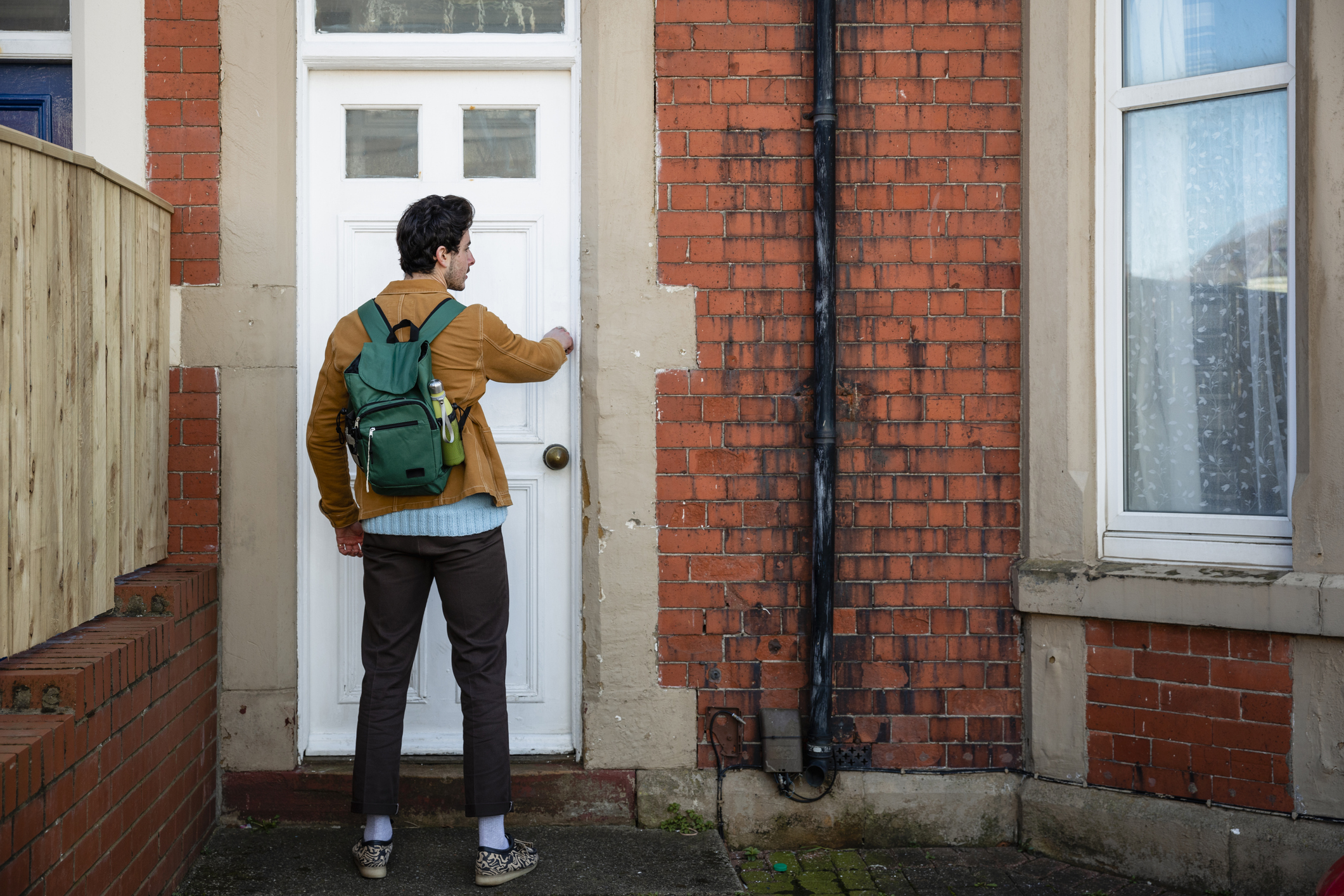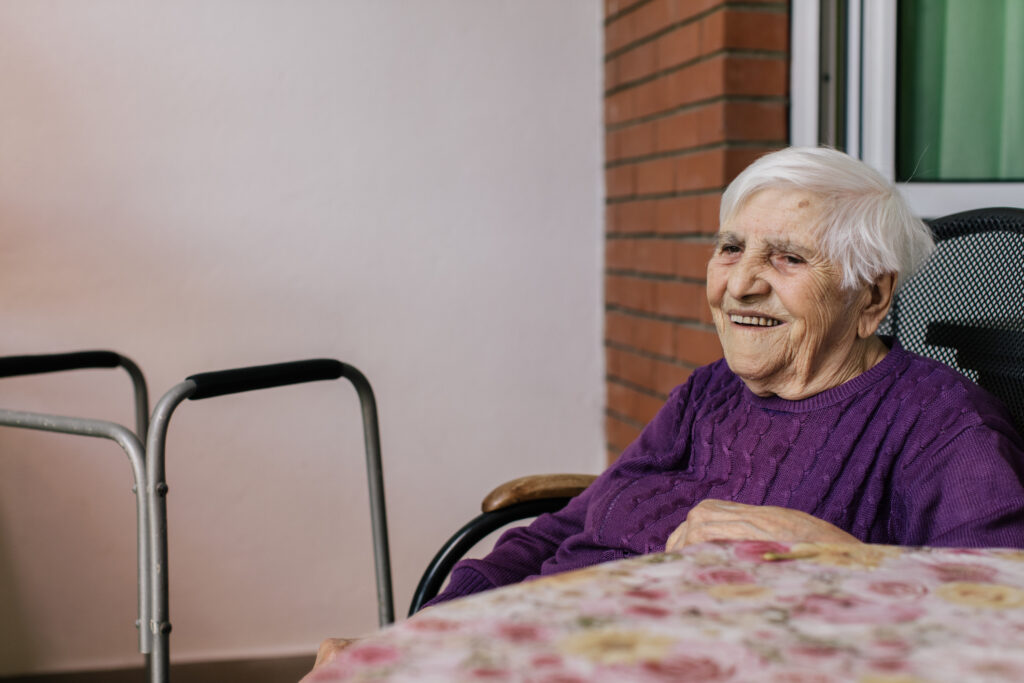
“With Charity Bank, we have a partner, not just a lender”
“Charity Bank has become part of a tripartite relationship with ourselves and Homes England. That arrangement has allowed us to provide more accommodation and strengthen our financial resilience.” Read our interview with YMCA Cheltenham’s CEO Joseph Main.
Tell us about YMCA Cheltenham.
YMCA Cheltenham is one of the oldest YMCAs in the world. It’s been a major catalyst for change in Cheltenham and Gloucestershire since 1855. The world has changed and we’ve changed with it. We’re now primarily focused on social housing, the provision of sport, and community engagement.
Have you seen an increase in the need for social housing?
Yes, and we anticipate that there’ll be increasing difficulties, particularly for families, due to the cost-of-living crisis. As a father myself, I can’t imagine the horror of being homeless with my child; it’s just appalling. More and more families will be faced with this awful situation.
In the last financial year, we provided 35% more nights of housing for those with nowhere else to go. This isn’t something that we should be celebrating though, because it means that the requirement has increased.
How is Charity Bank helping you to address this need?
Our relationship with Charity Bank started about two years ago. We have a 48-bed city centre property called Potter’s Place in Gloucester, which offers temporary emergency accommodation for single people and families. My predecessor entered into an arrangement with the local authority to part finance the building through a secured financing arrangement. It had quite a high fixed interest rate, so we refinanced with Charity Bank at a better rate of interest, which is saving us money. We also used some of that loan towards acquiring and refurbishing an additional property.
More recently, we’ve acquired an additional large property comprising 14 two-bed flats with the support of Charity Bank, Gloucester City Council and the Department of Levelling Up. We’ll be using it to provide accommodation exclusively for families at risk of homelessness, including families who are fleeing the war in Ukraine.
Charity Bank has become part of a tripartite relationship with ourselves and Homes England. That arrangement has allowed us to provide more accommodation and strengthen our financial resilience. With Charity Bank, we have a partner who we can talk to and who really understands us – much better than I ever expected a lender to.
In what way?
We’ve introduced a new and innovative way of approaching repeat homelessness. Not everyone can progress in a linear fashion, so it’s all too easy for someone to fall out of the system and back into homelessness. Then the cycle starts again, each time taking its toll on the individual in profound ways. Our homelessness provision is therefore centred around the individual and on their ability to progress.
We sat down with Adam Ruffinato from Charity Bank when this new approach was just an ambition. Boy, did he get it. He understood the challenge that we were trying to address and the way in which we wanted to address it.
We’ve seen a remarkable difference since launching the new approach. The national statistics for ‘positive move on’ can be as low as around 50–53%. We’ve increased that to 74–76% within one year (our latest statistics showing this to have increased further to 79%).
We’re now developing the same pathway for Cheltenham. So, our Charity Bank finance is spread across quite a large portfolio of work.
Why did you choose Charity Bank as your finance partner?
When we spoke to Charity Bank, we had a sense that they really understood us as an organisation and understood the social impact that we wanted to make. High street banks we’ve spoken too so far don’t really care about that.
Our board considered that level of understanding to be just as important as the terms of the arrangement itself. We did look at other social lenders, but Charity Bank won on all counts.
How did you find the loan process?
I didn’t find the process onerous or difficult. There was a reassuring sense of rigour when it came to aspects like testing our assumptions. Everything has been very clear, straightforward and professional, which is important when you’re entering into a partnership with a lender.
Relationships require understanding and respect from both parties. With this relationship, there’s a real sense of knowing where the other partner sits, what the expectations are, and what the potential is within that partnership. It feels very different to other relationships I’ve had with banks.
You’ve mentioned the word partner a few times; does Charity Bank feel more like a partner than just a loan provider?
Yes, I’m not using the word loosely. If we have any concerns relating to what we’re trying to achieve, or about our organisation in general, we could talk to Charity Bank as a partner not just a banker.
How did your trustees feel about taking out the loans?
The decision to borrow was taken very seriously. You have to go through the process of testing the trustees’ appetite for risk and assessing the risk itself. We anticipated the change in interest rates and checked that we could afford the loan repayments if the rate rose. We looked at other financing options, and there were quite a few on the table as a number of organisations wanted to engage with us. So, we weren’t coming from a point of desperation; Charity Bank was our chosen partner.
Is there anything that charities can do to make the loan process easier?
I would 100% recommend talking to Charity Bank. You also need to remember that you’re applying for a loan, not a grant. The money will need to be paid back, so you need to be very clear about your objective. What is it that you’re going to achieve by borrowing? How will you use the loan to add value and further fulfil your mission?
With a high street lender, all they really care about is whether you’re going to pay the money back and the value of the asset that you’re going to borrow against. Charity Bank still want to know all that, but there’s an extra dimension to the conversation as they care about the social impact side too.
What’s next for YMCA Cheltenham?
We’re very proud of our homelessness offering, so we want to roll it out to other parts of the county.
We’re also looking into the causes of homelessness. The increasing need is partly due to the cost of living and poverty, but other aspects are also relevant, such as crime and criminality. There are drivers relating to young people coming out of care, and the systems and support (or lack of) that’s available to them. So, there are a number of areas that we need to take a careful look at if we’re to seriously address homelessness.
We don’t anticipate needing any further borrowing for a while, but when we do need a loan, our first conversation will always be with Charity Bank because we have that relationship. I’d feel comfortable saying, “This is what we’re considering. What do you think?”
If you need a loan for your charity, please call Charity Bank via email on [email protected]
About Charity Bank
Charity Bank is the loans and savings bank owned by and committed to supporting the social sector. Since 2002, we have used our savers’ money to make more than 1400 loans totalling over £605m to housing, education, social care, community and other social purpose organisations.
Nothing in this article constitutes an invitation to engage in investment activity nor is it advice or a recommendation and professional advice should be taken before any course of action is pursued.


